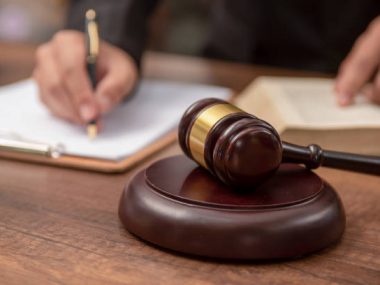If you are searching for how to spot a fake law firm, you are in the right place!
In a world filled with legal complexities and the need for expert advice, the presence of genuine law firms is crucial for individuals and businesses seeking legal representation and guidance.
Unfortunately, the rise of the digital age has also paved the way for the emergence of fraudulent entities posing as legitimate law firms.
These fake law firms can cause significant harm, both financially and legally, to those who unknowingly engage with them.
So, it becomes imperative to equip yourself with the knowledge and tools necessary to discern between genuine legal practitioners and deceptive imposters.
In this guide, we will delve into the telltale signs and strategies to help you navigate the treacherous waters of distinguishing a real law firm from a fake one – ensuring that your legal matters are in trustworthy hands.
Also Read:
What Is a Boutique Law Firm? (Find Out Now)
Is Marble Law Firm Legit? (Find Out Now)
How to Spot a Fake Law Firm
Spotting a fake law firm is essential to protect yourself and your legal interests.
Fake law firms can be incredibly deceptive, often mimicking the appearance of genuine practices.
Here, we will extensively discuss how to spot a fake law firm by identifying red flags and taking precautionary steps.
1. Unrealistic Promises
Be wary of law firms that make extravagant promises or guarantees regarding the outcome of your case.
Ethical lawyers cannot guarantee specific results as they depend on various factors, including the court’s decision.
2. Pressure Tactics
Fake law firms may pressure you into making immediate decisions or payments.
Genuine lawyers will provide information and give you time to consider your options.
3. Lack of Transparency
If a law firm is not transparent about their fees, services, or legal strategies, it’s a red flag. Honest lawyers are upfront about costs and processes.
4. Verify Their Credentials
- Check Bar Association Membership: Confirm if the lawyers are registered members of the relevant state or country’s bar association. Most reputable lawyers are listed on these official websites.
- Verify Educational Background: Research the educational backgrounds of the attorneys. Fake law firms may claim degrees or qualifications that they do not possess.
5. Research Their Reputation
- Online Reviews: Look for reviews and testimonials from previous clients. Legitimate law firms often have a substantial online presence with genuine reviews.
- Check for Disciplinary Actions: Search for any disciplinary actions or complaints against the firm or its attorneys. State bar associations maintain records of such incidents.
6. Check for Proper Licensing
Ensure that the lawyers are licensed to practice law in your jurisdiction.
You can typically check this information on the state bar association’s website.
7. Scrutinize Their Website
- Professionalism: A legitimate law firm’s website should be professional, well-organized, and free from spelling or grammatical errors. Fake firms may have poorly designed websites.
- Contact Information: Authentic law firms provide clear and accurate contact information, including a physical office address. Fake firms may have vague or non-existent addresses.
8. Confirm Contact Information
- Call the Office: Contact the law firm’s office using the provided phone number. Fake firms may have disconnected or non-functional phone lines.
9. Beware of Unsolicited Communications
- Cold Calls and Emails: Be cautious of unsolicited phone calls or emails offering legal services. Genuine lawyers typically do not reach out in this manner.
10. Seek References and Reviews
- Request References: Ask the firm for references from previous clients or colleagues. Genuine firms should be able to provide these upon request.
11. Consult Legal Authorities
- State Bar Associations: If you have doubts about a law firm’s authenticity, contact the state bar association in your area to verify their credentials and inquire about any complaints.
- Local Authorities: Report any suspicious law firms or individuals to local law enforcement or regulatory agencies.
12. Trust Your Instincts
Gut Feeling: If something feels off or too good to be true, trust your instincts.
It’s better to walk away from a potential scam than to risk your legal and financial well-being.
Also Read:
How Much Do Partners at Law Firms Make?
How Much Are X-Rays without Insurance?
Conclusion
Spotting a fake law firm requires a combination of due diligence, research, and careful observation.
Always prioritize your own protection and take the time to verify the legitimacy of any law firm you consider hiring for your legal needs.
If you encounter any red flags or suspicious behavior, proceed with caution or seek legal advice elsewhere to ensure your rights and interests remain safeguarded.







1 comment
Your blog is a constant source of wisdom and positivity Thank you for being a ray of light in a sometimes dark world